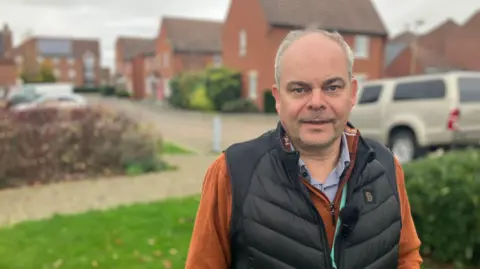Councillors' 34% pay rise branded 'obscene'
 Stuart Gleave/Getty Creative
Stuart Gleave/Getty CreativeA rise in councillor allowances of nearly 34% has been voted through by a district council.
One South Oxfordshire District Council member who voted against described the rise as "obscene", and said it was a "slap in the face" for residents.
The council said the increase was agreed after a recommendation from an independent panel, which carried out a review.
The Liberal Democrat leader of the council, David Rouane, said the rise was needed to make serving on the council "accessible" to people from a wider range of backgrounds.
The basic allowance, paid to all councillors, will go from £6,275 to £8,391 per year, from April 2025.
Special allowances for extra responsibilities will also rise - including the amount paid to the leader, which will go from £25,101 to £29,369.
The independent panel looked at 27 similar sized councils to see how much their basic allowance was in 2023.
This rise means that councillors in South Oxfordshire will be paid more in allowances than any of the other councils examined paid out at that point.

Conservative councillor Ian Snowdon criticised the increase, which will cost the authority an extra £125,581 in total per year.
"[It's] an obscene amount," he said.
"In the current economic climate, it's just an absolute slap in the face for residents.
"We're supposed to represent our residents, not fleece them."
The authority said the independent panel that made the recommendation stated it "wished to ensure the level of basic allowance does not constitute a barrier to candidates from all sections of the community standing, or re-standing, for election as councillors."
Liberal Democrat David Rouane, who is the leader of the council, said: "I want to hear different voices: people who are at home caring for their disabled child, people who are trying to get onto the housing ladder, people who know what it is like to be made redundant, or to depend on public services.
"To make the council accessible to these people we need to pay a reasonable allowance and offer further support.
"It's also vital that recommendations for councillor allowances are made by independent members of the community.
"It's a robust system and I think it's important not to undermine it."
You can follow BBC Oxfordshire on Facebook, X (Twitter), or Instagram.
